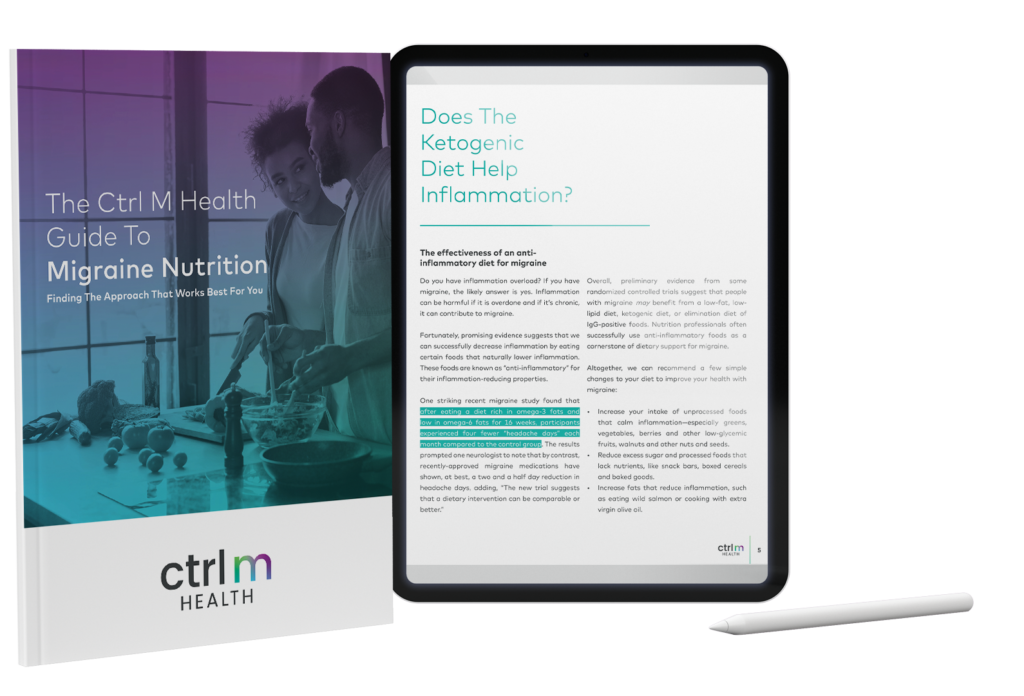Getting better quality sleep is the single most impactful lifestyle change you can make for migraine. Even small changes can make a big impact in the severity and frequency of your headaches.

However, getting quality sleep if you have migraine is easier said than done.
That’s because migraine and sleep have a profound effect on each other. And just as an improvement in one leads to an improvement in the other, creating an upward spiral of good health, a downturn in one will also cause a downturn in the other — resulting in a negative spiral of worsening migraine and worsening sleep.
Melatonin is a safe and non-addictive natural sleep aid. It helps people fall asleep and regulate their internal clocks (circadian rhythms). Melatonin is also effective as a potential supplement for migraine prevention.
Melatonin for migraine headaches: The research
Melatonin is a hormone naturally produced by our pineal gland to help promote sleep. The ability to produce enough melatonin — and to release it at the right time of day — is important for achieving restful sleep. It’s made in the evenings, prompted by our circadian rhythms and nighttime darkness. Our melatonin levels stay elevated throughout the night, allowing us to fall asleep and stay asleep, and then fall as morning approaches, leaving us wakeful and refreshed.
Research has shown that melatonin supplements are a promising treatment for sleep disorders like insomnia. Studies have established a link between low melatonin levels and migraine. One intriguing study found that patients with chronic migraine (at least 15 headache days per month) had abnormally low levels of melatonin byproducts. This has led researchers to explore the benefits of melatonin for migraine headaches.
The literature on melatonin and migraine prevention is growing, but still limited. Thus far, however, it has found enough supporting evidence that a systematic review concluded, “Melatonin is very likely to be a promising alternative for migraine prophylaxis.” For example:
-
- In a double-blind randomized study of 196 people with episodic migraine, patients were given either 3 mg melatonin, 25 mgs of the medication amitriptyline, or a placebo. After 12 weeks, the melatonin group saw a reduction of 2.7 headache days per month – significantly better than the placebo, and equal to (though better tolerated than) amitriptyline.
- In a 2016 pilot study, 41 people with either episodic migraine or frequent tension-type headache took 4 mg of melatonin a half-hour before bedtime for six months. Both types of patients experienced a significant reduction in headache days, as well as an improvement in quality of life.
The clinical experience of headache specialists, including those at the Jefferson Headache Center, has found that a 5 mg dose of melatonin can be effective in improving sleep for those living with migraine.
Side effects of melatonin for migraine headaches
Melatonin’s side effects are the same as its intended effects: sleepiness and drowsiness. For that reason, when taking melatonin for migraine headaches, it’s best to take it an hour before bedtime, and never before driving a motor vehicle or operating machinery.
It’s always a good idea to check with your doctor first if you’re considering taking any dietary supplements for the first time. This is especially important if you are pregnant, nursing, taking any medications, or have any medical conditions.
To learn more about the research behind melatonin for migraine, visit our melatonin research page. For more about the links between diet and migraine, sign up to receive check out our free eBook The Care Tuner Guide to Migraine Nutrition.
The Care Tuner Guide to Migraine Nutrition
Research shows that the types of foods we eat, and when we eat, have an impact on our migraine. Our new eBook helps you understand the link between migraine and nutrition.






